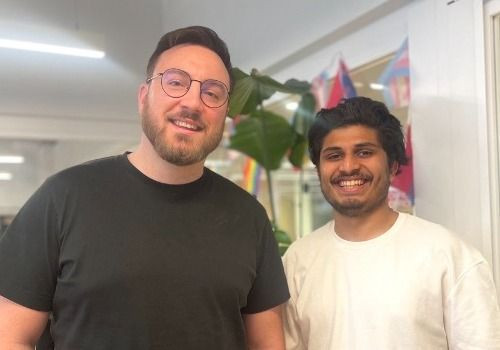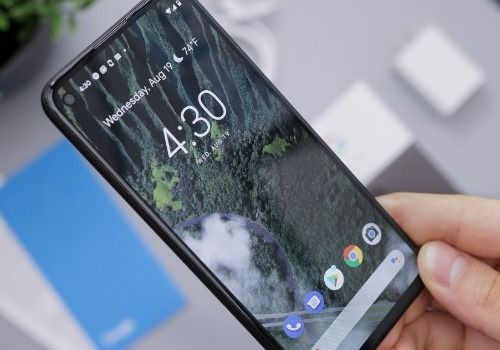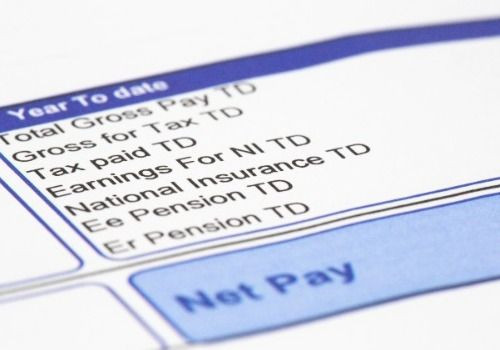Search IMG Library
YOUR SPECIALISM- See all
- Gastroenterology
- Microbiology
- Urology
- Rheumatology
- Stroke Medicine
- Ophthalmology
- Oncology
- Neurology
- Histopathology
- Haematology
- ENT Surgery
- Acute Medicine
- Anaesthetics
- Respiratory
- Dermatology
- Geriatrics
- Radiology
- Surgery
- Paediatrics
- Psychiatry
- Emergency Medicine
- Critical Care & ICU
- General Medicine
276 blogs found

Celebrating the Junior Doctor Pay Offer
Celebrating the Junior Doctor Pay Offer: A Positive Step for International Recruitment
At IMG Connect, we are pleased to share the news of the new pay offer for junior doctors in England. This development comes after nearly two years of negotiations between the British Medical Association (BMA) and the government. It marks a significant milestone in improving the appeal of the NHS for international doctors.
A Competitive Edge in Global Recruitment
If approved by BMA members, the proposed pay increase will average 22.3% over two years. This adjustment is crucial for restoring junior doctors' salaries and aligning them more closely with international standards. Historically, the pay disparity between the NHS and other countries, such as Australia, the United States, and Canada, has been a barrier to attracting top talent from abroad. The enhanced pay scales aim to make the NHS a more competitive choice for doctors worldwide.
Attracting Global Talent
The new pay agreement positions the NHS as a more attractive option for international doctors. By offering more competitive salaries, the NHS can appeal to doctors from countries with higher pay standards, thereby expanding the pool of qualified candidates interested in contributing to the UK healthcare system.
A Bright Future for the NHS
This agreement is not just a financial adjustment; it's a commitment to the healthcare professionals who are vital to the NHS. Fair compensation for junior doctors helps create a supportive environment where they can develop both professionally and personally. At IMG Connect, we believe this pay offer is a positive step toward a more sustainable and high-quality healthcare system.
As we continue to assist NHS trusts in attracting the best talent from around the world, this new pay offer strengthens our efforts and demonstrates a commitment to building a robust healthcare workforce. This agreement is a win for junior doctors, international recruits, and the future of the NHS.
IMG Jobs
Search and find live NHS doctor jobs in the UK
IMG Resources
Read more useful articles on finding an NHS trust doctor job, pay scales & doctor’s salary in the UK, relocation and much more!
Get in Touch
Don’t hesitate to get in touch using the buttons above (and below) to discuss doctor job options in the NHS, including discussions regarding a typical doctor's salary in the UK and the most suitable hospital locations for you.
For regular news and updates, follow IMG Connect on social media using the links below:

Top Tips from Dr. Barker and Dr. Ilyas for Excelling in MRCP PACES
Preparing for the MRCP PACES can be a daunting task, but with the right strategy and mindset, success is within reach. We are proud to introduce our expert faculty, Dr. Joseph Barker, MRCP, and Dr. Nabil Ilyas, MRCP, who bring extensive experience and a passion for teaching to our program. Having both passed PACES, they have compiled their top tips to help you excel.
1. Understand the Exam Format
The MRCP PACES exam consists of five stations, each designed to test different clinical skills. Familiarise yourself with the structure and timing of each station to manage your time effectively during the exam. Each station is 20 minutes with 5-minute intervals in between.
The stations include:
Station 1: Respiratory and Communication (10 minute, 10 minute)
Station 2: Consultation (15 minutes with 5 minute QA with examiner)
Station 3: Cardiovascular and Neurological System Examination (10 minute, 10 minute)
Station 4: Abdominal and Communication (10 minute, 10 minute)
Station 5: Consultation (15 minutes with 5 minute QA with examiner)
2. Practice Clinical Examinations
Thoroughly Practice as you’re examined. Regularly practice clinical examinations on colleagues, friends, patients, mum & dad or even a pillow. Pay special attention to performing systematic examinations and articulating your findings clearly. This will help you build muscle memory and fluency in your exam technique. Make sure to practice in front of people who make you nervous, that way you get used to performing under pressure.
3. Develop a Structured Approach
Create a consistent and structured approach for each clinical examination. This ensures that you cover all necessary aspects and don't miss key points under pressure. WIPE – Wash your hands, Introduce yourself, Permission, Expose … then inspection, palpation, percussion, and auscultation – look how simple the examination stations are! Same for the history – presenting complaint, patient concern*, history of presenting complaint … past medical history… you know the rest. *Bring up the patient's concerns early so you can shape the consultation around them as people.
4. Refine Your Communication Skills
Effective communication is vital for ALL stations especially consultation and communication stations. Practice explaining medical conditions, treatment options, managing complaints and delivering bad news with empathy and clarity. Seek feedback from peers or mentors to improve your communication style.
5. Master the Art of Differential Diagnosis
Develop a strong foundation in formulating differential diagnoses. There is no substitute for being out on the wards and this really is where the examiner can get the measure of a candidate. For each clinical scenario you encounter, practice thinking through possible diagnoses and justifying your reasoning in a STRUCTURED manner- there is a theme here. Practice out loud, we promise it will help.
6. How to investigate and manage patients
You will have passed MRCP Part 1 and 2. You have the knowledge but PACES tests decision making; you need to know emergency cases thoroughly and have a logical and STRUCTURED approach to care. # Investigations start with bedside investigations, then bloods, then imaging, then special tests. For management patient care is ALWAYS “dictated by degree of severity and patient choice”, whilst management options more often than not “include conservative, medical and surgical options” - these stock phrases buy you time to think of what goes after. Use them.
7. Simulate Exam Conditions
Recreate exam conditions by timing your practice sessions and simulating the exam environment. Nominate an examiner and don’t break character until time is up, however excruciating the line of questioning. This will help you get accustomed to the time constraints and pressure of the actual exam. Consider joining a study group or attending mock exam sessions for added realism. IMG Connect Medicine Facebook group can help you find study partners.
8. Focus on Common* Conditions (*common = common for PACES)
While preparing, prioritise common and high-yield conditions that are frequently tested in PACES. Things that are stable in outpatient but have excellent signs, like dialysis, transplant and congenital heart disease. Ensure you can confidently assess, diagnose, and manage conditions such as COPD, heart failure, stroke, and diabetes. Don’t forget that if a patient doesn’t show up the examiners will go and fish someone from the wards. Keep an eye out for cannulas, wrist bands and drains which can be a clue as to their inpatient status.
9. Seek Feedback and Reflect
Ask anyone that will watch you to give you feedback. Your final exam technique will be the sum of the best titbits from every one of these people, whether they are supervisors, mentors, peers or family. Reflect on your performance, identify areas for improvement, and adjust your preparation strategy accordingly. Continuous feedback and self-reflection are key to ongoing improvement.
10. Balance
Medicine is a marathon, not a sprint. The PACES process, including the months of build-up, is mentally and physically demanding, requiring you to stay focused on your goal for a long time. We all thought PACES was impossible at some point… and now we are teaching it. You will get there but make sure to maintain good health by getting adequate rest, exercise, nutrition and to have fun in the build up to reduce stress and improve stamina.
11. Clinical consultation (CC) station:
Answering patient concerns carries more marks than one can imagine. It is the make or break of the CC station. PLEASE DO NOT wait for the “bell at 2 mins remaining” but start to address patient concerns maybe with 5 mins left on the clock as the patient/surrogate always have follow-up concerns. Many candidates feel that they’ve got the “case” and they feel confident about the station. But they don’t realize that this cardinal mistake has happened leading them to score less than they would have liked.
12. Examination Station
Practice, Practice, Practice on presenting your examination findings in under 2 minutes in an orderly fashion. Everyone knows how to examine an abdomen, everyone knows ascites or a hepatomegaly or what ballot-able kidneys feel like but only a few know ‘how to put it all together’ and present it in a very systematic and neat manner leading to an accurate differential.
Conclusion
Passing the MRCP PACES requires a combination of clinical knowledge, practical skills, effective communication and self-belief. By following these ten tips, you can enhance your preparation and boost your confidence for the exam. Remember, consistent practice, a structured approach and a positive mindset are your best allies in achieving success.
IMG Jobs
Search and find live NHS doctor jobs in the UK
IMG Resources
Read more useful articles on finding an NHS trust doctor job, pay scales & doctor’s salary in the UK, relocation and much more!
Get in Touch
Don’t hesitate to get in touch using the buttons above (and below) to discuss doctor job options in the NHS, including discussions regarding a typical doctor's salary in the UK and the most suitable hospital locations for you.
For regular news and updates, follow IMG Connect on social media using the links below:

Top 5 Places to Visit on the Island of Jersey
Are you an international medical graduate considering a move to the Island of Jersey?
Nestled between the English Channel and France, Jersey offers a unique blend of British and French cultures, breathtaking landscapes, and a host of activities to enjoy during downtime. Here are the top 5 places you must visit in Jersey.
1. St. Helier: The Vibrant Capital
St. Helier, the capital of Jersey, is a vibrant hub of activity and a great place to start exploring the island. Explore the picturesque marina, shop at quaint village markets, and indulge in some delicious local cuisine, offering the freshest produce, at one of the many independent cafes and restaurants.
- Elizabeth Castle
- Central Market
- Maritime Museum
2. Mont Orgueil Castle: A Medieval Marvel
Perched on the east coast of Jersey, Mont Orgueil Castle offers unmatched views of endless coastline over the harbour of Gorey and the French coast beyond. This medieval castle has been standing for over 800 years and is rich in history. Explore its staircases, hidden rooms, and enjoy the various exhibitions detailing the Castle's storied past.
- Stunning coastal views
- Historical exhibitions
- Interactive displays
3. St. Brelade's Bay: Beachside Bliss (One of Jersey's most popular beaches)
Head to St. Brelade's Bay for some relaxation! Its golden sands and crystal-clear waters make it the perfect spot for a family day out, a romantic sunset stroll, or some invigorating water sports if you're feeling extra adventurous. The bay also boasts some charming cafes and restaurants, where you can enjoy the freshest seafood while basking in the vibes and taking in the views ahead.
- Oyster Box
- Jersey Crab Shack St Brelade
- La Brise
4. La Hougue Bie: A Step Back in Time
Listed among the Top 10 Oldest Buildings in the World, La Hougue Bie is a Neolithic site that offers a fascinating glimpse into Jersey’s ancient past.
- Neolithic burial mound
- Archaeology museum
- Medieval chapel
5. Jersey Zoo: Conservation at its Heart
Founded by the famous naturalist Gerald Durrell, Jersey Zoo is not just any zoo – it's a haven for endangered species and a leader in global conservation efforts. The zoo’s dedication to preserving wildlife makes it an inspiring visit for all ages.
- Gorilla Enclosure
- Orangutan Island
- Reptile and Amphibian House
Plan Your Visit
Whether you're visiting Jersey as part of your move to the UK or simply looking for a delightful getaway, this island offers a wealth of experiences. From its vibrant capital to its serene beaches, and historic landmarks, there's something for everyone to enjoy.
IMG Jobs
Search and find live NHS doctor jobs in the UK
IMG Resources
Read more useful articles on finding an NHS trust doctor job, pay scales & doctor’s salary in the UK, relocation and much more!
Get in Touch
Don’t hesitate to get in touch using the buttons above (and below) to discuss doctor job options in the NHS, including discussions regarding a typical doctor's salary in the UK and the most suitable hospital locations for you.
For regular news and updates, follow IMG Connect on social media using the links below:

FRCPath Part 1 Online - changes to the exam delivery
FRCPath Part 1 Online
In response to the ongoing challenges posed by the COVID-19 pandemic, the Royal College of Pathologists has continued to offer the FRCPath Part 1 exams online. This includes FRCPath Part 1 in Histopathology, Haematology, and Microbiology.
This means that FRCPath Part 1 can be taken from the comfort of your own home. This development allows the College to continue offering the FRCPath Part 1 exam to both UK trainees and overseas pathologists.
Please note that the delivery of FRCPath Part 2 remains offline, with examinations being conducted in person.
FRCPath Part 1 Delivery
The format of the Part 1 exam remains unchanged – 125 SBA (single best answer) and EMQs (extended matching questions) which aim to assess the candidate's overall knowledge and understanding of histo/cytopathology, basic science underpinning pathology (including microbiology), and full understanding of autopsy practices undertaken in an NHS District General Hospital.
FRCPath Part 2 is available in multiple overseas centres; in Irbid, Jordan, Cairo, Egypt or Dubai, UAE. These centres will be offered on an annual basis in either Spring or Autumn session subject to there being sufficient candidates to run the centre.
All other Diploma practical, Part 1 practical and Part 2 examinations can only be taken in the UK
The online exam is delivered through a company called TestReach.
Candidates will have the opportunity to trial the examination software before the exam to familiarise themselves with it ahead of time. The TestReach system is fully proctored, and candidates will need to complete both an IT systems and environment check before the exam. These checks will ensure that candidates' devices are suitable for the exam and that they are in an environment that satisfies exam conditions, i.e., where they do not have access to textbooks or other revision materials.
For more information on the online examination, see the College website here, or read their FAQs here.
How to Apply
The application window for the Autumn 2024 sitting of the FRCPath Part 1 exam will open at the end of July and close in mid-September. While the examination date has yet to be finalized, candidates are advised to apply early and may withdraw their place for a refund if the examination date is unsuitable.
The cost of the exam is £700. For up-to-date information on exam and application dates, keep an eye on the College website here.
For more information on FRCPath in Histopathology, take a look at our collection of articles and blogs here, where we explore the full examination suite, including a detailed look at the structure and format, fees, preparation, and resources.
If you are looking for general information that any overseas doctors might need to know, check out our IMG Resources library.
We hope this is helpful for any overseas doctors preparing to sit their FRCPath Part 1 exam, and the team here at IMG Connect wish you the best of luck!
Don’t forget to share your progress and successes with us using the hashtag #imgstories on social media. We love to hear from you.
Join the online histopathology community – connect with like-minded histopathologists and dedicated pathology recruiters in the IMG Histopathologists Facebook group.
For regular news and updates on the Royal College and all things histopathology, follow IMG Connect on social media using the links below:

Setting Up a UK Mobile Phone Contract
Just arrived in the UK, how do I set up my mobile phone?
There are many things to consider when setting up your new life in the UK, one of which is how to get yourself a mobile phone contract. In this article we’ll help overseas doctors arrange a mobile phone contract by addressing the following questions:
Who are the main providers in the UK?
How can I check for the best coverage in my area?
What do I need to set up a contract?
Can I use my current handset?
What if I plan to be in the UK less than 12 months?
First, some general advice
At IMG Connect we strongly recommend doing some research by using several trusted market-comparison websites and looking at the reviews to help decide on your network provider.
The wrong contract might leave you stuck with a long contract, that proves to be unnecessarily expensive whilst offering poor signal in your area. If you rush this process and take out a contract that is not right, you will regret it. This comes from personal experience, so please do your homework!
Main Providers in the UK
The main providers are:
EE
02
Vodafone
Three Mobile
There are numerous other providers that ‘piggy-back’ off their service, but do not have their own network. The package you can get from a ‘piggy-back’ provider is potentially cheaper than the main provider who’s service they use – however the network quality will always be poorer than the main providers.
How can I check for the best coverage in my area?
Make sure to check the coverage and network availability in your area by using the Ofcom mobile and broadband checker.
Ofcom are the government approved authority for communications and tasked with ensuring people get the best service from their provider. You can raise any issues you have, free of charge, with Ofcom.
What do I need to set up a contract?
Once you’ve decided on your provider and package, most mobile phone companies will only require the following to open a contract:
Two proofs of address (utility bills, rental contracts etc.) which must show both your name and address.
Proof of Identification
Active bank account in order to set up a direct debit
Packages on offer:
There are two types of package you can consider; Contract or Pay-as-you-go
Contract:
Most providers offer a minimum contract of 12 months, SIM only. To get a handset included as part of your contract package typically you need a 24-month contract.
Pay-as-you-go:
Another option to consider is a pay-as-you-go sim card with no contract or handset. This will cost about £10 and can be up and running immediately.
Can I use my current mobile phone handset?
Yes, all sim-only packages will work with the device you already have.
What if I plan to be in the UK less than 12 months?
Whilst most IMGs prefer taking out a contract, if you do plan to be in the UK less than 12 months, a pay-as-you-go contract may be a better option.
In summary:
Only you will know what you are going to use your phone for, and which package will be right for you. If you are someone looking to call overseas regularly, think about WhatsApp calls, VOIP calling packages, face time etc.
With regard to phone contracts, just make sure to get a number of different quotes on similar packages and use these to try and get a bargain for yourself with one particular provider. All networks tend to be flexible at some point and the general rule is, if you don’t ask, you don’t get!
IMG Jobs
Search and find live NHS doctor jobs in the UK
IMG Resources
In our IMG Resources library you can read more useful articles on finding an NHS trust doctor job, pay scales & doctor’s salary in the UK, relocation and much more!
Get in Touch
Get in touch using the buttons above (and below) to discuss doctor job opportunities in the NHS, including discussions regarding a typical doctor salary in the UK and the most suitable hospital locations for you.

MRCPsych Paper B – A detailed breakdown for overseas Psychiatrists
The MRCPsych exams can be overwhelming for overseas Psychiatrists and UK trainees alike.
Where do you turn for study materials? How do you prepare for the exams? What are the exams dates and fees? Where can I sit the exam? How can I find support online?
In this blog we will explore MRCPsych Paper B and everything that you need to know about how to sit the exam, taking a detailed look at the following topics:
An overview of MRCPsych
What is MRCPsych Paper B?
How is the exam structured and marked?
Am I eligible to sit this exam?
As an international psychiatrist, when and where can I sit the exam?
Where and how do I apply?
How much will the exam cost?
What is the best way to prepare for MRCPsych B?
#IMG Tips
Passed? What next?
Skip to the relevant section if you know what you’re looking for.
An overview of MRCPsych
The MRCPsych exams are the central components of psychiatry training in the UK. The examination series is designed to test the candidate’s knowledge of basic medical sciences as well as the clinical skills needed for diagnosis and management within psychiatry.
For IMGs taking this route, full MRCPsych satisfies the postgraduate requirements for full GMC registration.
The exams within the series are as follows:
MRCPsych Paper A
MRCPsych Paper B
MRCPsych CASC
For a more general overview of the MRCPsych examinations via our IMG Resources, please click here.
MRCPsych Paper B
Paper B is a three-hour written exam which asses critical review and the clinical topics in psychiatry.
Each questions is worth 150 marks, comprised of 150 questions:
One third - critical review
Two thirds - clinical topics
Exam structure and marking
Paper B will cover the following sections of the syllabus:
Organisation and Delivery of Psychiatric Services
General Adult Psychiatry
Old Age Psychiatry
Psychotherapy
Child and Adolescent Psychiatry
Substance Misuse/Addictions
Forensic Psychiatry
Psychiatry of Learning Disability
Critical Review
In Paper B, the percentage split, and marks allocation for the 150-mark exam will be approximately:
Eligibility
Trainees from any country in the world can sit the MRCPsych Examinations providing that they meet the eligibility requirements.
You are eligible to sit Paper B if you are a fully registered medical practitioner. It is also recommended that you have 12 months experience in Psychiatry before attempting Paper B.
Exam locations and dates
Since the Pandemic, commencing from 2021, the Royal College of Psychiatrists has made the decision to move all MRCPsych exams online and will remain this way for the forseeable future. This means you can sit the MRCPsych exams from your home country with submission and preparation details available on the Royal College website.
This change makes it much easier for international psychiatrists to complete their Royal College exams and work towards GMC registration within a normal timeframe and with reduced disruptions.
Exams are usually held three times a year – you will find the most up-to-date information on exam and application dates on the Royal College website.
Applications
To apply you’ll need to complete the Royal College online application form. The form is only available during the published application dates and must be submitted prior to the closing date. If you miss the cut-off date, your application will not be considered.
For new overseas candidates, you will need to register for a Royal College login first.
You will need to provide the following:
Personal details
Primary Medical Qualifications & Registration
Training
Written paper selection
Fees
At the end of your application, you will be directed to an online payment system where you can pay by credit or debit card, so make sure you have your details ready.
Once your application is complete you will receive two confirmation emails, one to confirm receipt of the application and one to confirm the payment has been received.
See below for MRCPsych Paper B fees for 2024:
PMPT Trainees and Affiliates (UK & Ireland Centres) - £496
Non-PMPT Trainees and Affiliates (UK & Ireland Centres) - £550
Preparation
With lots of materials online, we have discussed with our community of international psychiatrists as to the best resources and materials relating to the exams. Most IMGs recommended starting with the Royal College, who have created useful resources to help you to prepare for the exams. See below:
Syllabus: We always suggest that this is the best place to start – plan your study around the curriculum topics and make a road map to your success in the exams. You can find this here.
Current critical review syllabus: For Paper B, candidates will need to ensure that they make optimal use of the MRCPsych Paper B critical review - evidence-based practice syllabic content, available here.
Sample Papers: These will help you polish your exam techniques and are a good way to regularly benchmark your knowledge against the syllabus. Additionally, they will help you work quickly on the day as you will already know what to expect. The samples can be found here.
Marking schemes: Candidates pass or fail the written papers based on their performance, and not how well you perform against other candidates. As such, it is a good idea to understand how the exam is worked, so you can maximise your exam skills, giving you the best chance of a pass. These can be accessed here.
Sample exam: These can help you understand the exact format of the exam and to familiarise yourself with the online exam environment. This is available here, you'll need scroll down to see 'Taking Papers A and B onine: Sample Exam'.
Online exam guidance: Detailed guidance written specifically to guide candidates in preparing for an sitting an online exam, including technology checks and timings. The guidance can be accessed here.
The Royal College also suggest taking a look at Passing the MRCPsych - an insider’s guide - a useful resource to help you to get over the first steps. This is available here.
#IMG Tips
Start your revision early – preparation is key, and what better way to avoid last-minute stress?
Choose the best resources for you – whether it’s the Royal College materials, online courses or flash cards, try to figure out what works best for you.
Join our online support community – why not be part of a community of like-minded psychiatrists and MRCPsych aspirants? Join IMG Connect on social media for a place to ask questions and share resources.
Passed? What next?
Now that you have passed Paper A and B you are now eligible to sit the CASC exam. For more information take a look at our blog we will explore MRCPsych CASC and everything that you need to know about how to sit the exam, including syllabus, dates, results, fees and preparation.
For more useful blogs & articles on exams, registrations & qualifications to help you find your dream job in the NHS - take a look at our IMG library.

How to succeed at MRCPsych CASC with PassTheCASC
In this blog, we’ll be covering some of the key aspects of the CASC exams, as well as introducing you to the team at PassTheCASC, an online learning and resource platform for MRCPsych CASC aspirants. We will be covering:
What is MRCPsych CASC?
Why does MRCPsych CASC Matter?
What resources are available?
The 3-Keys
Tutorial Examples
CASC Simulator
What is MRCPsych CASC?
Let’s begin with a quick recap of the CASC exam. The Clinical Assessment of Skills and Competencies or CASC is a practical exam which takes the format of an OSCE and tests your clinical skills in a range of competencies.
It is made up of two circuits of individual stations made up of:
Five stations on history taking, including risk assessment
Five stations on examination, including physical and mental state
Six stations on patient management
For full guidance on the structure of the exam, visit the examination page of the Royal College website or see our detailed blog on the MRCPsych CASC exam here.
Getting started with preparation
It can be tough to know the best place to start, psychiatry consultants (both IMGs and UK trainees) as well as the team at PassTheCASC, it seems the general consensus was that the Royal College website is the best place to begin. There are some great resources on their website to help applicants prepare for the exam.
Why does MRCPsych CASC Matter?
The value of holding MRCPsych CASC cannot be understated, serving as both a symbol of your medical competence as a psychiatrist and giving you a competitive edge in the NHS job market. Attaining full MRCPsych demonstrates to potential employers that you have the necessary knowledge, skills, and experience to provide high-quality care to patients. To secure and work in an NHS job at the Speciality Doctor grade, and above, many NHS Trusts will list MRCPsych CASC as essential criteria.
MRCPsych also provides a stepping stone for further specialist training and can significantly enhance career prospects for international psychiatrists, more easily facilitating entry into more senior positions in the NHS, such as speciality doctor, the new specialist grade and consultant roles.
What resources are available?
IMG Connect have a library of written resources geared towards preparation for the CASC exam. If you’re interested in any of these, please get in touch here and we would be delighted to share these with you.
IMG Psychiatrists MRCPsych CASC Crash Course
This is a tailored MRCPsych CASC course for overseas psychiatrists sitting the CASC exam. This course offers weekly sessions covering the entire exam and its various domains, including marking and station requirements. This is accompanied by small group role-play sessions to allow IMGs to practice stations across various scenarios with feedback on each station, delivered by an experienced NHS psychiatrist and specialist psychiatry recruiters. These sessions are completely free to all doctors.
The course is supplemented by additional advice and guidance on MRCPsych CASC as a whole, GMC registration support, as well as guidance and webinars on other topics such as finding work in the NHS, relocation support and specialist registration.
You can access our IMG Psychiatrists CASC Study Course by joining the Facebook group here.
Partnering with PassTheCASC

NHS SAS Doctors - Take-Home Pay in England
What does an NHS specialty doctor take home as their monthly salary?
Overseas doctors frequently ask us what their monthly take-home pay would be when working as an NHS specialty doctor. So, to help IMGs plan for life in the UK we put together some examples to give a better idea of what you'll actually keep each month. We hope they are of use!
How much will I take home?
Firstly, take home pay in the UK is the amount that you will receive in your bank account after all deductions have been made from your annual salary. Deductions include Income Tax, National Insurance and NHS pensions.
It is important to state that this is just a guideline. We have based our figures on the gross salary for each pay threshold and have assumed that you do not have other sources of income.
The figures can be higher or lower depending on any additional responsibilities or hours worked, other sources of income you have, your final tax bracket, whether you opt out of pension, and whether you claim for your tax-deductible expenses.
Specialty Doctor Take-home Pay Expectations
Pay threshold
Annual gross salary*
Estimated annual take-home pay**
Estimated monthly take-home pay**
Min
£59,175
£44,879
£3,740
1
£68,174
£50,098
£4,175
2
£75,998
£54,636
£4,553
3
£84,121
£59,348
£4,946
4
£95,400
£65,889
£5,491
*before tax and pension
**based on standard salary and not inclusive of additional payments for extra hours worked or pension deductions
Specialist Grade Take-home Pay Expectations
Pay threshold
Annual gross salary*
Estimated annual take-home pay**
Estimated monthly take-home pay**
Min
£96,990
£66,812
£5,568
1
£100,784
£68,855
£5,738
2
£107,155
£71,277
£5,940
*before tax and pension
**based on standard salary and not inclusive of additional payments for extra hours worked or pension deductions
To explore the pay & salary conditions across all doctor grades in the UK take a closer look here.

NHS Consultant Doctors’ Pay across the UK 2024
As an overseas doctor looking to work in the UK, it is essential to understand the salary that comes along with your NHS job and how this can be different from one country in the UK to another.
Whilst the NHS has guides that are used to fairly and uniformly determine consultant pay, these do differ across the UK.
Basic Pay
Consultants in England and the other home countries each have their own consultant contracts in place. These are based on a full-time work commitment of 10 programmed activities (PAs) per week, each having a time-tabled value of four hours.
The basic pay thresholds in England and their equivalents in the rest of the home countries are shown below:
England
Scotland
Wales
Northern Ireland
England
Consultants currently earn a basic rate of between £105,504 and £139,882 in England.
Threshold
Years completed as a consultant
Basic Salary
1
0
£105,504
2a
After 3 years completed
£111,714
2b
After 4 years completed
£114,894
3
After 8 years completed
£126,018
4
After 14 years completed
£139,882
The most recent full pay circular for England can be found here.
The National Clinical Impact Award (NCIA) scheme aims to reward consultants who contribute most to the delivery of safe and high-quality care and the improvement of NHS services. You can apply for a new award after you have completed a full year in an eligible role.
Scotland
Consultants currently earn a basic rate of between £107,144 and £142,369 in Scotland.
Threshold
Years completed as a consultant
Basic Salary
1
0 (starting salary)
£107,144
2
1
£109,407
3
2
£112,662
4
3
£115,921
5
4
£119,170
5
6
7
8
6
9
£126,905
10
11
12
13
7
14
£134,640
15
16
17
18
8
19
£142,369
The most recent full pay circular for Scotland can be found here.
All consultants who have reached point five of the pay scale are eligible for consideration for discretionary points, except for distinction award holders. Consultants granted discretionary points are not normally considered again for two years, although this may vary.
Wales
Consultants currently earn a basic rate of between £106,000 and £154,760 in Wales.
There is a fixed pay point of £116,600 for locum consultants, which will apply regardless of years of consultant experience.
Threshold
Years completed as a consultant
Basic Salary
1
0 (starting salary)
£106,000
2
1
£111,300
3
2
£116,600
4
3
£121,900
5
4
£130,380
6
5
£137,800
7
6
£146,280
8
7
£154,760
The most recent full pay circular for Wales can be found here.
Please note that the pay scale above is for substantive or permanent doctors in Wales.
Commitment awards are available to all consultants after three years’ service at the top of the consultant pay scale, who demonstrate their commitment through satisfactory job plan reviews. They are then eligible at three-yearly intervals, until they have achieved eight award levels.
Northern Ireland
Consultants currently earn a basic rate of between £88,799 and £119,723 in Northern Ireland.
Threshold
Years completed as a consultant
Basic Salary
1
1 (starting salary)
£88,799
2
2
£91,581
3
3
£94,362
4
4
£97,141
5
5
£99,913
6
7
8
9
6
10
£106,520
11
12
13
14
7
15
£113,124
8
16+
£119,723
The most recent full pay circular for Northern Ireland can be found here.
When would I see an increase in my pay?
We are confirming when exactly SAS doctors would see the increase to their pay, but it has been agreed that the uplifts will be backdated to April 2024.
Job Planning and Programmed Activities
As part of your contract, your job plan will be created in partnership with your new NHS employer. This is an annual agreement that sets out your duties, responsibilities and objectives for the length of your contract.
There are four basic categories of contractual work which will be included in your job plan: direct clinical care (DCC), supporting professional activities (SPAs), additional responsibilities and external duties.
There are ways that consultants will be able to earn more than the basic rates above and these can include additional rotas and PAs. This will also be discussed in the creation of your job plan.
For more information on NHS doctor benefits and pay arrangements in the UK, take a look at our IMG Resources library.

NHS SAS Doctors’ Pay across the United Kingdom
For international doctors looking to work in the UK, it is important to understand the salary you will be offered with your NHS job and how this can be different depending on the country you are working in within the UK.
The NHS follow pay guidelines that are used to fairly and uniformly determine consultant pay, however, these do differ across countries in the UK.
What is an SAS doctor?
SAS stands for Staff grade, Associate Specialist, and Specialty Doctor. They will have at least four years of full-time postgraduate training, two of which have been in their relevant specialty.
They are experienced and senior doctors in fixed term or permanent posts (outside a training pathway).
Many SAS doctors have made a positive choice to step into a SAS position from a traditional consultant training pathway. This could be for reasons such as geographical stability or wanting to familiarise themselves with the NHS system before working up to a consultant position.
SAS doctors maintain their skills through the CPD system and there are routes, through gaining CESR (Specialist Registration) or applying for a training post, for SAS doctors to become consultants if they wish to.
Basic Pay
Specialist Grades and Specialty Doctors in England and the other home countries have their own contracts in place for senior doctors. These contracts are based on a full-time work commitment of 10 programmed activities (PAs) per week, each having a time-tabled value of four hours.
The basic pay thresholds in the UK are shown below:
England
Scotland
Wales
Northern Ireland
England
SAS doctors currently earn a basic rate of between £59,175 and £95,400 as Specialty Doctors and from £96,990 to £107,155 as Specialist Grade doctors in England.
Specialty Doctor
Years of experience
Basic Salary
0 (min)
£59,175
1
2
3
£68,174
4
5
6
£75,998
7
8
9
£84,121
10
11
12
£95,400
13
14
15
16
17
Associate Specialist / Specialist Grade
Years of experience
Basic Salary
0 (min)
£96,990
1
2
3
£100,784
4
5
6
£107,155
The most recent full pay circular for England can be found here.
Scotland
SAS doctors currently earn a basic rate of between £47,905 and £89,329 as Specialty Doctors and from £67,163 to £109,259 as Associate Specialists in Scotland.
Specialty Doctor
Scale point
Basic Salary
0
£61, 690
1
£61,690
2
£61,690
3
£73,593
4
£73,593
5
£73,593
6
£78,099
7
£78,099
8
£78,099
9
£87,115
10
£87,115
11
£87,115
12
£96,129
13
£96,129
14
£96,129
15
£96,129
16
£96,129
17
£96,129
Associate Specialist
Years of experience
Basic Salary
0
£96,990
1
£96,990
2
£96,990
3
£100,784
4
£100,784
5
£100,784
6
£100,784
The most recent full pay circular for Scotland can be found here.
Wales
SAS doctors currently earn a basic rate of between £56,346 and £90,000 as Specialty Doctors and from £91,500 to £101,089 as Specialists in Wales.
Specialty Doctor
Pay Scale Point
Basic Salary
01
£59,727
02
£59,727
03
£59,727
04
£68,810
05
£68,810
06
£68,810
07
£76,708
08
£76,708
09
£76,708
10
£84,905
11
£84,905
12
£84,905
13
£95,400
14
£95,400
15
£95,400
16
£95,400
17
£95,400
18
£95,400
Specialist Grade
Pay Scale Point
Basic Salary
01
£96,990
02
£96,990
03
£96,990
04
£100,784
05
£100,784
06
£100,784
07
£100,784
The most recent full pay circular for Wales can be found here.
Northern Ireland
SAS doctors currently earn a basic rate of between £52,530 and £82,400 as Specialty Doctors and from £83,945 to £95,275 as Associate Specialists in Northern Ireland.
Specialty Doctor
Years of experience
Basic Salary
Pay Point
0
£59,175
1
1
2
3
£68,174
2
4
5
6
£75,998
3
7
8
9
£84,121
4
10
11
12
£95,400
5 - top
13
14
15
16
17
Specialist Doctor
Years of experience
Basic Salary
Pay Point
1
£96,990
1
2
3
4
£100,784
2
5
6
7
£107,155
3 (top)
The most recent full pay circular for Northern Ireland can be found here.
Job Planning and Programmed Activities
As part of your contract, your job plan will be created in partnership with your new NHS employer. This is an annual agreement that sets out your duties, responsibilities and objectives for the length of your contract.
There are four basic categories of contractual work which will be included in your job plan: direct clinical care (DCC), supporting professional activities (SPAs), additional responsibilities and external duties.
There are ways that consultants will be able to earn more than the basic rates above and these can include additional rotas and PAs. This will also be discussed in the creation of your job plan.

NHS Consultant Pay Increase 2024
What does the NHS Consultant pay scale increase in England mean for you?
Doctors play an integral part in delivering high quality patient care in the NHS and as such, they are rewarded with competitive pay rates and benefits.
NHS pay scales can be confusing, particularly for overseas doctors. Here we hope to provide some clarity to help you understand the NHS grades and how they fit on the various NHS pay scales.
Now, let's take a closer look at the updated consultant pay rates. The latest pay circular released by NHS Employers provides detailed information on the revised salary structure.
Remember, use the below as a salary guide for service-level posts in England. It is worthwhile checking with your IMG Consultant the best pay opportunities for you, it is highly conceivable that you can earn more than the pay scales below depending on experience and demand.
The pay elements of the new deal will be applied in the coming months and backdated to the 1st of March 2024.
Threshold
Years completed as a consultant
Basic Salary (£)
23/24 deal
Period of eligibility for next threshold
Pay scale code
1
0
105,504
1 year
YC72 Point 00
2
1
105,504
1 year
YC72 Point 01
3
2
105,504
1 year
YC72 Point 02
4
3
111,714
1 year
YC72 Point 03
5
4
114,894
5 years
YC72 Point 04
5
114,894
4 years
YC72 Point 05
6
114,894
3 years
YC72 Point 06
7
114,894
2 years
YC72 Point 07
8
126,018
1 year
YC72 Point 08
6
9
126,018
5 years
YC72 Point 09
10
126,018
4 years
YC72 Point 10
11
126,018
3 years
YC72 Point 11
12
126,018
2 years
YC72 Point 12
13
126,018
1 year
YC72 Point 13
7
14
139,882
5 years
YC72 Point 14
15
139,882
4 years
YC72 Point 15
16
139,882
3 years
YC72 Point 16
17
139,882
2 years
YC72 Point 17
18
139,882
1 year
YC72 Point 18
8
19
139,882
-
YC72 Point 19
These updated figures reflect an increase across various experience levels, underscoring the NHS's commitment to fair compensation for its dedicated workforce.
These changes are particularly encouraging for overseas doctors considering a career in the UK. The improved pay rates, coupled with the renowned quality of healthcare in the NHS, present an enticing opportunity for medical professionals seeking growth and fulfilment in their careers.
Download the latest NHS pay circular for detailed information
When would I see an increase in my pay?
We are confirming when exactly SAS doctors would see the increase to their pay, but it has been agreed that the uplifts will be backdated to April 2024.
Additional pay, benefits, pensions and terms & conditions
Current national salary scales for medical and dental staff are published in pay and conditions circulars on the NHS Employers website.
You may be eligible for additional pay on top of your basic salary if you work above the standard 10 PAs, work on call & weekends, or take on extra responsibilities. All doctors are eligible for NHS pensions and benefits.

SAS doctors in England vote to accept Government pay offer
New Pay Deal for SAS Doctors Accepted
The BMA’s SAS UK Committee has accepted the Government’s latest pay offer for England, following a 79% approval in a referendum.
Key Pay Increases
What do you need to know?
For SAS doctors on 2021 contracts: Annual increase of 9.5% to 19.4%.
For SAS doctors on 2008 contracts: £1,400 uplift plus 6% increase for 2023/24.
Go to our SAS Doctors’ Pay across the NHS blog to view the recent salary changes.
Career Progression and Contract Improvements
The offer also includes proposals to enhance career progression and improve contracts for locally employed doctors, ensuring better working conditions and opportunities for advancement.
While this deal marks progress, the BMA continues to push for further improvements, focusing on pay restoration and career advancement for SAS doctors.
Stay tuned for more updates, as we continue to keep you in the loop about the latest updates in the UK healthcare sector.
For more information and updates, keep an eye on our website and social media channels.
When would I see an increase in my pay?
We are confirming when exactly SAS doctors would see the increase to their pay, but it has been agreed that the uplifts will be backdated to April 2024.
Additional infomation
Sources
Read the full article about the SAS doctors in England accepted pay offer
Getting started
NHS Trusts can interpret the NHS consultant pay scales above and an international doctor’s experience in different ways, so use this blog as a guideline for understanding what you may be eligible for when coming to work in the NHS.
Your IMG Consultant is happy to assist with any negotiations related to your job plan to ensure your experience is taken into account.
For more information on NHS doctor benefits and pay arrangements in the UK, take a look at our IMG Resources library.